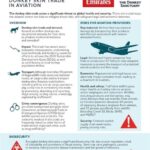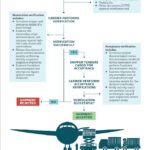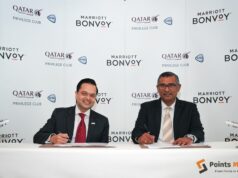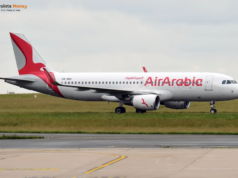In a powerful alliance to combat illegal wildlife trafficking, Emirates, the world’s largest international airline, has partnered with The Donkey Sanctuary, an international animal welfare charity. Together, they are raising awareness about the growing risks posed by the transportation of donkey skins via air cargo. The collaboration aims to address the significant threat of the donkey skin trade, which is closely linked to organized crime, illegal wildlife trafficking, and global biosecurity risks.
This partnership resulted in the creation of the Aviation Risk and Threat Assessment operational guide, which outlines critical information to help aviation stakeholders identify and prevent the illegal transportation of donkey skins. The guide highlights how the trade in donkey skins is part of a much larger network of illicit activities, and the guidelines aim to set standards for airlines and cargo operators to combat this issue more effectively.
The Extent of the Issue Donkey Skin Trade
According to The Donkey Sanctuary’s latest research, approximately six million donkeys are killed each year for their skins, with the majority of these animals being slaughtered in Africa. These donkey hides are then exported globally by both ship and air, where they are used in the production of traditional medicines and remedies.
While this practice may seem obscure to some, it is a highly lucrative and illegal trade. The skins are sold for their value in producing gelatin-based products, often used in cosmetics and herbal medicine. This demand has led to the exploitation of donkeys, many of which are subjected to brutal conditions, including long journeys and inhumane slaughter methods.
Beyond the animal welfare concerns, the transportation of donkey skins poses a substantial biosecurity risk. Smuggling of inadequately processed donkey skins in combination with legitimate cargo, such as textiles or leather, can spread harmful diseases, making this trade a dangerous global issue.
The Link Between Donkey Skin Trade and Organized Crime
Recent studies by The Donkey Sanctuary, in collaboration with the University of Oxford’s Saïd Business School and Wildlife Conservation Research Unit (Wild CRU), have uncovered the connection between the movement of donkey skins and other forms of illegal trafficking, including wildlife trafficking and drug smuggling. The unregulated and unhygienic nature of the donkey skin trade creates significant challenges for law enforcement and public health authorities.
The research found that the criminal networks involved in the donkey skin trade are often the same ones engaged in other illicit activities. These include wildlife poaching, human trafficking, and the transportation of drugs. By smuggling donkey skins, criminals are able to bypass regulations, exploit logistical networks, and fund their illicit enterprises.
Emirates Takes a Stand Zero Tolerance Policy on Donkey Skins
Emirates has already taken strong steps to combat the illegal donkey skin trade. Earlier this year, the airline enforced a ban on transporting donkey hides. This ban follows the endorsement of an African-wide moratorium on the slaughter of donkeys for their skins. Which was passed by African Heads of State during the 37th African Union (AU) Summit in February 2024.
Following the African Union’s decision, Emirates quickly expanded its zero-tolerance policy to cover the transport. Donkey hides, parts, and related products, alongside banned species and hunting trophies. The airline’s commitment to eliminating illegal trafficking is reflected in its rigorous operational practices Including stringent cargo screening, in-depth document verification, and employee training.
The Aviation Risk and Threat Assessment Guide
The Aviation Risk and Threat Assessment guide co-created by Emirates and The Donkey Sanctuary aims to raise awareness. The risks associated with the donkey skin trade and provide practical advice to airlines and cargo operators. The guide outlines the biosecurity risks of smuggling improperly processed donkey skins with legitimate cargo. It also outlines the common methods traffickers use to conceal donkey skins. Highlights the potential convergence of criminal activities. Where the same networks responsible for trafficking donkey skins could also be linked to wildlife and drug trafficking.
Key points from the operational guide include:
- Biosecurity risk: Donkey skins that are not properly processed can spread diseases when shipped with legitimate cargo.
- Concealment methods: Traffickers use sophisticated methods to hide donkey skins, making detection more difficult.
- Crime convergence: Criminal networks involved in the donkey skin trade are often engaged in other illegal activities, including wildlife trafficking and drug smuggling.
The guide serves as an essential tool for the aviation industry, providing vital information to identify potential threats and take immediate action to prevent the trafficking of donkey skins. The collaboration between Emirates and The Donkey Sanctuary is a crucial step forward in curbing the exploitation of donkeys and dismantling the illicit networks involved in this cruel trade.
Emirates Role in the Fight Against Wildlife Trafficking
Emirates has long been a leader in efforts to combat illegal wildlife trafficking. In addition to its policies on donkey skins. The airline has implemented a wide range of measures to detect and prevent. The transportation of illicit wildlife products. These include:
- Screening: Emirates employs advanced cargo screening technology to identify suspicious shipments.
- Spot checks: Routine checks are conducted during transit to verify the contents of shipments and prevent the movement of illegal goods.
- Employee training: Emirates has invested in extensive training programs to ensure its staff members are equipped with the knowledge and skills to identify and report suspicious cargo.
- Document verification: The airline works closely with authorities to ensure that all permits and documentation related to shipments are authentic and in compliance with regulations.
Emirates is not only protecting biodiversity but also sending a strong message to other airlines and industries. About the importance of standing up against wildlife trafficking.
The Role of the Wider Aviation Industry
The partnership between Emirates and The Donkey Sanctuary is a pivotal moment in the fight against donkey skin trafficking. The Aviation Risk and Threat Assessment guide aims to inspire other airlines. Cargo operators to take similar steps to combat this issue. The aviation industry plays a crucial role in the global supply chain. Its involvement is essential in preventing the illegal movement of donkey skins and other illicit wildlife products.
By working together, airlines, regulatory authorities, and animal welfare organizations can create a unified front against trafficking. This can help dismantle the criminal networks involved, protect wildlife, and ensure safer, more ethical global trade practices.
Conclusion
The joint efforts of Emirates and The Donkey Sanctuary to combat the illegal trade in donkey skins. A powerful example of how the aviation industry can play a key role in protecting both animals and global biosecurity. Through their collaboration, they are setting a new standard for the industry. One that is focused on ethical and sustainable practices.
As Emirates and The Donkey Sanctuary tackle skin trafficking. Their efforts will hopefully inspire other airlines and industries to follow suit. Ensuring that the world’s biodiversity is protected for generations to come.









